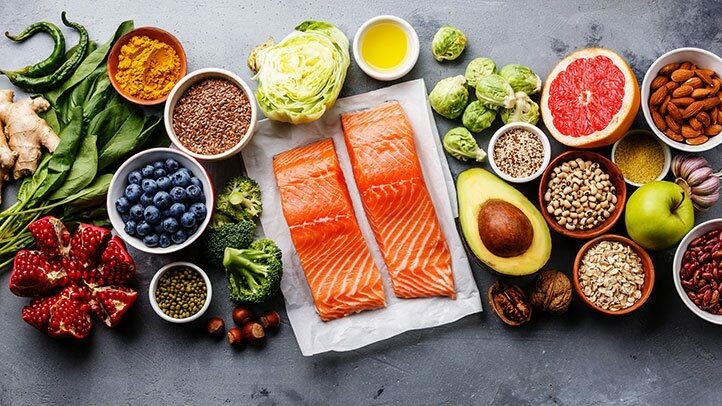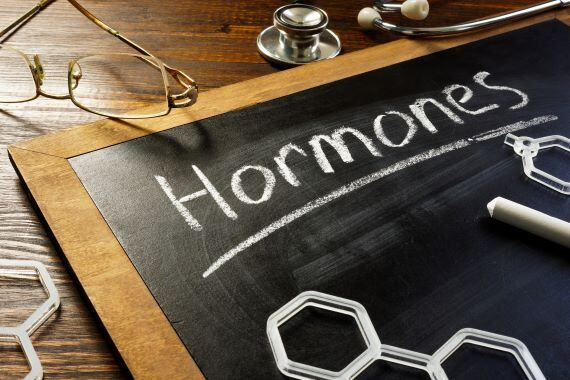
Hormones are chemical messengers that play a crucial role in regulating various physiological processes in the body, including growth, metabolism, reproduction, and mood. An imbalance in hormones can lead to various health issues, ranging from fatigue and weight gain to more serious conditions like diabetes and thyroid disorders. Recently, antioxidants have garnered attention for their potential to support hormonal balance and overall health. This blog explores how hormones function and the ways in which antioxidants can contribute to hormonal health.
The Role of Hormones
Hormones are produced by endocrine glands, including the pituitary, thyroid, adrenal glands, and pancreas. They travel through the bloodstream to tissues and organs, where they exert their effects. Some key hormones and their functions include:
1. **Insulin**: Regulates blood sugar levels.
2. **Thyroid hormones (T3 and T4)**: Control metabolism and energy production.
3. **Estrogen and Progesterone**: Regulate the menstrual cycle and reproductive health.
4. **Cortisol**: Manages stress response and immune function.
5. **Testosterone**: Influences muscle mass, bone density, and sex drive.
The Role of Hormones
Hormones are produced by endocrine glands, including the pituitary, thyroid, adrenal glands, and pancreas. They travel through the bloodstream to tissues and organs, where they exert their effects. Some key hormones and their functions include:
1. **Insulin**: Regulates blood sugar levels.
2. **Thyroid hormones (T3 and T4)**: Control metabolism and energy production.
3. **Estrogen and Progesterone**: Regulate the menstrual cycle and reproductive health.
4. **Cortisol**: Manages stress response and immune function.
5. **Testosterone**: Influences muscle mass, bone density, and sex drive.
Hormonal Imbalance and Its Effects
When hormone levels are too high or too low, it can disrupt normal bodily functions. Common symptoms of hormonal imbalance include:
- Fatigue
- Weight gain or loss
- Mood swings
- Sleep disturbances
- Reduced libido
- Irregular menstrual cycles
Factors contributing to hormonal imbalances include stress, poor diet, lack of exercise, and exposure to toxins.
The Power of Antioxidants
Antioxidants are compounds that protect the body from oxidative stress by neutralizing free radicals—unstable molecules that can damage cells and contribute to aging and diseases. Common antioxidants include vitamins C and E, selenium, and flavonoids found in various fruits, vegetables, nuts, and seeds.
How Antioxidants Support Hormonal Health
1. **Reducing Oxidative Stress**: By neutralizing free radicals, antioxidants help protect endocrine glands from damage, ensuring they function optimally and produce hormones in the right amounts.
2. **Supporting Thyroid Health**: Selenium, an antioxidant found in nuts, seeds, and seafood, is crucial for the production and regulation of thyroid hormones. It helps convert thyroxine (T4) into the more active triiodothyronine (T3).
3. **Balancing Cortisol Levels**: Chronic stress can lead to elevated cortisol levels, which negatively impact overall health. Antioxidants like vitamin C support adrenal gland function and help regulate cortisol production, promoting a balanced stress response.
4. **Enhancing Insulin Sensitivity**: Antioxidants such as alpha-lipoic acid (ALA) and vitamin E improve insulin sensitivity, which helps regulate blood sugar levels and prevents conditions like diabetes.
5. **Protecting Reproductive Health**: Antioxidants like vitamin E and coenzyme Q10 (CoQ10) support reproductive health by reducing oxidative stress in reproductive tissues. This is particularly beneficial for maintaining healthy levels of estrogen and progesterone.
Incorporating Antioxidants into Your Diet
To support hormonal health, it’s important to include a variety of antioxidant-rich foods in your diet. Some excellent sources of antioxidants include:
- **Berries**: Blueberries, strawberries, and raspberries are rich in vitamins C and E.
- **Nuts and Seeds**: Almonds, walnuts, and sunflower seeds provide selenium and vitamin E.
- **Leafy Greens**: Spinach, kale, and Swiss chard are packed with vitamins A and C.
- **Fruits**: Oranges, kiwi, and papaya offer a good dose of vitamin C.
- **Vegetables**: Bell peppers, broccoli, and carrots are excellent sources of various antioxidants.
- **Green Tea**: Rich in polyphenols, green tea is a powerful antioxidant beverage.
Conclusion
Hormonal balance is essential for maintaining overall health and well-being. By understanding the role of hormones and incorporating antioxidant-rich foods into your diet, you can support your endocrine system and promote optimal hormonal health. Regular exercise, adequate sleep, and stress management are also vital components of a holistic approach to maintaining hormonal balance.
---
By focusing on these lifestyle changes and dietary adjustments, you can harness the power of antioxidants to support your hormonal health and overall well-being.
When hormone levels are too high or too low, it can disrupt normal bodily functions. Common symptoms of hormonal imbalance include:
- Fatigue
- Weight gain or loss
- Mood swings
- Sleep disturbances
- Reduced libido
- Irregular menstrual cycles
Factors contributing to hormonal imbalances include stress, poor diet, lack of exercise, and exposure to toxins.
The Power of Antioxidants
Antioxidants are compounds that protect the body from oxidative stress by neutralizing free radicals—unstable molecules that can damage cells and contribute to aging and diseases. Common antioxidants include vitamins C and E, selenium, and flavonoids found in various fruits, vegetables, nuts, and seeds.
How Antioxidants Support Hormonal Health
1. **Reducing Oxidative Stress**: By neutralizing free radicals, antioxidants help protect endocrine glands from damage, ensuring they function optimally and produce hormones in the right amounts.
2. **Supporting Thyroid Health**: Selenium, an antioxidant found in nuts, seeds, and seafood, is crucial for the production and regulation of thyroid hormones. It helps convert thyroxine (T4) into the more active triiodothyronine (T3).
3. **Balancing Cortisol Levels**: Chronic stress can lead to elevated cortisol levels, which negatively impact overall health. Antioxidants like vitamin C support adrenal gland function and help regulate cortisol production, promoting a balanced stress response.
4. **Enhancing Insulin Sensitivity**: Antioxidants such as alpha-lipoic acid (ALA) and vitamin E improve insulin sensitivity, which helps regulate blood sugar levels and prevents conditions like diabetes.
5. **Protecting Reproductive Health**: Antioxidants like vitamin E and coenzyme Q10 (CoQ10) support reproductive health by reducing oxidative stress in reproductive tissues. This is particularly beneficial for maintaining healthy levels of estrogen and progesterone.
Incorporating Antioxidants into Your Diet
To support hormonal health, it’s important to include a variety of antioxidant-rich foods in your diet. Some excellent sources of antioxidants include:
- **Berries**: Blueberries, strawberries, and raspberries are rich in vitamins C and E.
- **Nuts and Seeds**: Almonds, walnuts, and sunflower seeds provide selenium and vitamin E.
- **Leafy Greens**: Spinach, kale, and Swiss chard are packed with vitamins A and C.
- **Fruits**: Oranges, kiwi, and papaya offer a good dose of vitamin C.
- **Vegetables**: Bell peppers, broccoli, and carrots are excellent sources of various antioxidants.
- **Green Tea**: Rich in polyphenols, green tea is a powerful antioxidant beverage.
Conclusion
Hormonal balance is essential for maintaining overall health and well-being. By understanding the role of hormones and incorporating antioxidant-rich foods into your diet, you can support your endocrine system and promote optimal hormonal health. Regular exercise, adequate sleep, and stress management are also vital components of a holistic approach to maintaining hormonal balance.
---
By focusing on these lifestyle changes and dietary adjustments, you can harness the power of antioxidants to support your hormonal health and overall well-being.













0 Comments